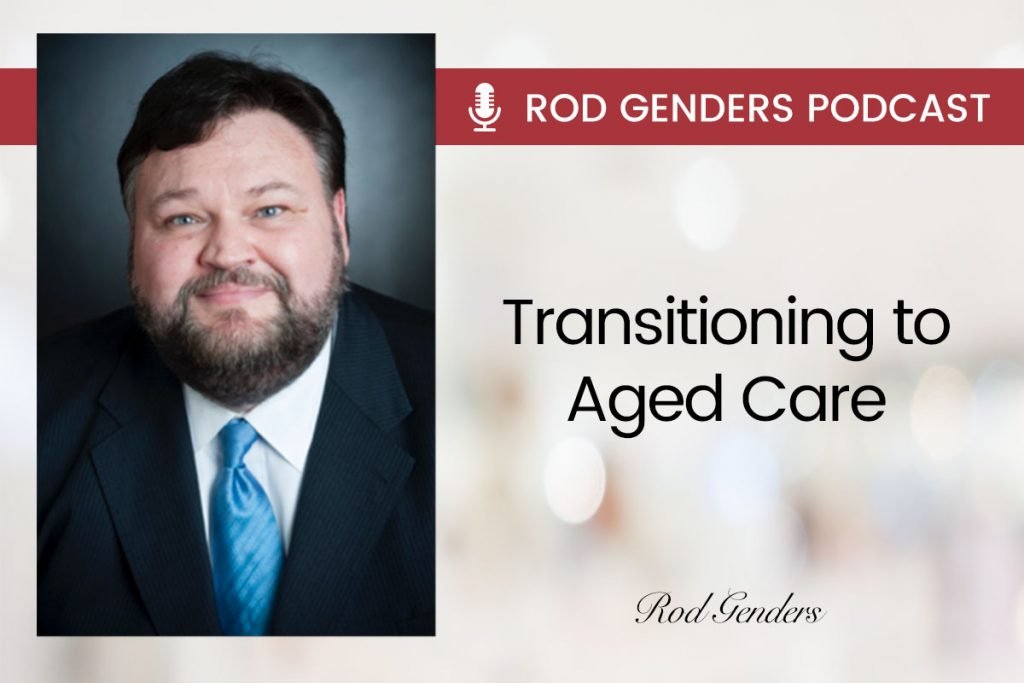
- How Relocation Financing Can Help
- Why Comparing Home Loans is a Good Idea
- How to Improve Prospects of Getting a Home Loan
An interview between Rod Genders (senior Australian lawyer specialising in Wills and estates) and Cheryl Cocks (mortgage broker with Aussie)
Many of us have an elderly relative who needs to transition to a Retirement Village. They generally need to sell their current property in order to finance the new purchase, but they need to move out of the old property first so it can be renovated for sale. One option that exists is something called a Relocation Loan. How do they work?
A relocation loan is a type of financing most commonly used if a purchaser has entered into a contract to purchase a new home but is relying on proceeds of the sale of the existing (older) property, with a later settlement date.
The financial institution lends the client the funds required to purchase the new property using one or both properties as their security for the loan. Once the older property is sold the loan is either paid out or reduced to what is called the residual mortgage.
The loan is used to bridge the period between settlements, using the client’s equity in their existing property. Generally speaking the interest rates are similar to the standard products the institutions offer.
The loans generally allow for a six to twelve months bridging period, but can vary depending on the institution. At settlement any unpaid interest is paid and the loan is paid out in full or reduced to the residual mortgage.
An attractive feature of these loans is that most institutions base their affordability calculations on the residual mortgage, the benefit being that the client can qualify without income if you are not left with residual mortgage after settlement.
Aussie deal with several lenders who will consider this type of lending.
There are typically restrictions around the maximum LVR (loan to value ratio), also around the timeframe under which the current property must be sold and customer needs acceptable income to be able to meet servicing of both loans, until the current property is sold.
When assisting clients with their financing enquiries, the sort of information typically required will include:
- Is the customer/s working or retired?
- What source of income is coming into the home?
- What is the approx balance owing on the current loan (if applicable) and the monthly repayments?
- What is the approx value of the current home?
- Are there are other liabilities apart from the current mortgage?
- What is the purchase price of the retirement village accommodation?
- Does the customer have cash funds to cover the costs of the renovations on the current home? (if applicable)
- Does the customer have cash funds to use as a deposit for the next purchase and to cover any associated costs such as stamp duty, agent fees, etc?
Why is comparing home loans a good idea, and how much can it save?
Comparing home loans is a good idea, and some customers who have been “loyal” to a lender for several years or more, may be paying a higher rate if they haven’t refinanced recently.
As an Aussie Broker, I can review a person’s circumstances and see if a customer could be paying less, or be on a home loan that is better suited to their needs. I search thousands of home loans from Aussie’s panel of over 20 leading lenders^ to find them the right deal.
The amount of money a person might save by changing home loans is specific to the person, however when I meet with customers and show them the potential savings, I always take into account any costs of refinancing, including discharge fees, application or fees and the Land Tax Office fee of moving the title.
How can someone improve their prospects of getting a home loan?
I provide my clients with a checklist of things to do to maximise success:
- Check your credit score to learn of where your credit file stands.
- Before applying, you might want to work with your current employer for a longer time if you’re in a probation period.
- Know how your employment status (Fulltime, Part time or casual) might impact your application.
- Identify other income that you might be able to use for borrowing purposes (including Family Tax Benefits, carers allowance and/or pension, rental income from investment properties, shares and dividends etc).
- Ensure that all identification is current.
- Provide clear statements for any existing credit (including credit cards, existing home loans, interest free accounts, council rates, personal loans, car loans, etc).
Not all lenders are available through all brokers.
© 2021 AHL Investments Pty Ltd ABN 27 105 265 861 Australian Credit Licence 246786.
SPECIAL REPORT “7 Things You Must Know Before You Make Your Will”
In this report you will Learn:
Why home-made Wills can be a LOT more expensive than you might think.
The secret weapons used by the rich & powerful to protect their assets, and transfer their wealth two or three generations ahead.
How Estate and Trustee Companies make BIG money from “free” Wills.
The Most Common Estate Planning Mistakes, how they can cost your family a fortune, and How to Avoid Them.
The Elements of a Sound Estate Plan – why a Will alone is not enough.
How to Make Sure Your Assets Stay in Your Family and are not lost to creditors, lawsuits or ex-spouses.
How to guard against challenges to your Estate after you’re gone.
